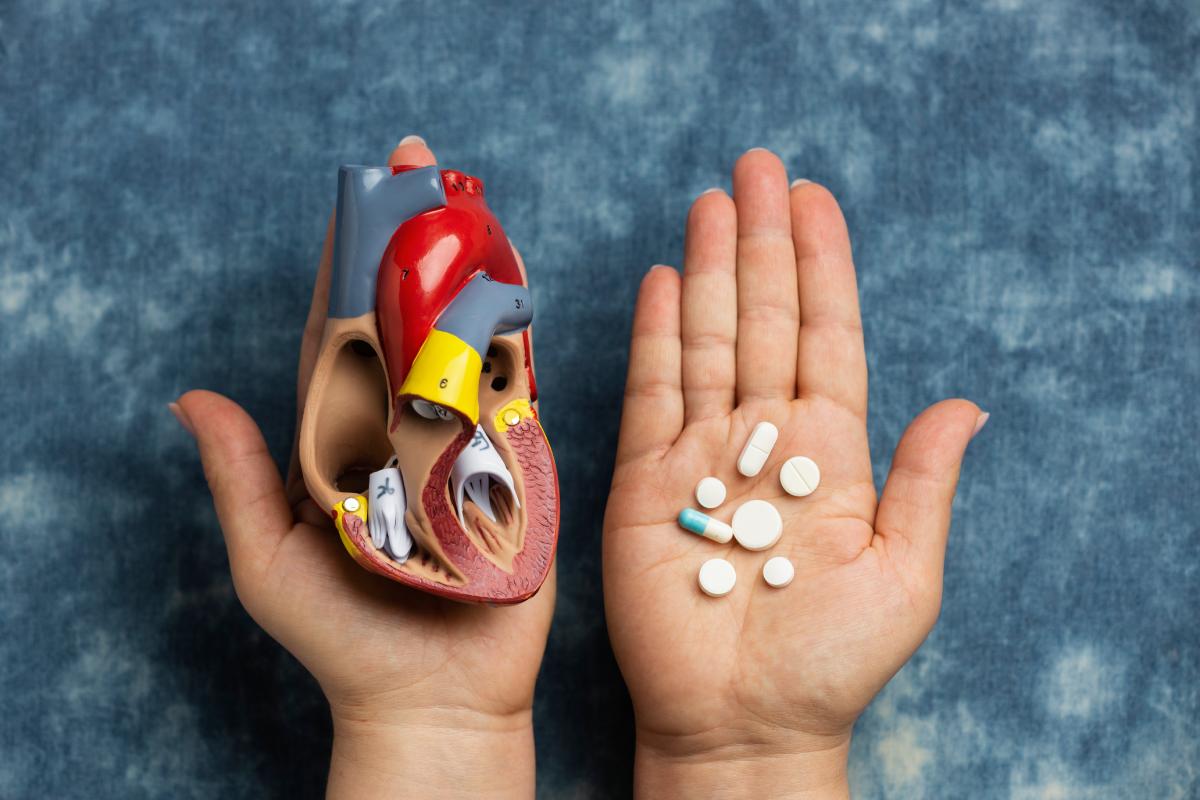Book on Whatsapp
9892101616
The Significance of Conducting a Blood Sugar Fasting PP from the Most trusted Diagnostic Centre
Diabetes
Sat Aug 12 2023
Getting blood sugar checked is crucial to find out the levels of glucose or sugar inherent in your blood. This test is advised by the clinicians to help in diagnosis of Diabetes and people affected from diabetes are able to utilize this test to tackle the condition adequately. By doing these blood sugar tests, individuals will be informed about any lifestyle changes and whether the blood sugar levels are high or low.
Importance of blood sugar test
Blood Sugar F,PP examination, patients will be informed about how perfectly or imperfectly your diabetes medication works for you and the overall medical treatment goals for diabetes. Blood Tests are also recommended by clinicians to verify whether the patient is inflicted with Diabetes or pre-diabetes. This is a medical state wherein the sugar levels in your blood are increased rather than normal. If you are above 40 years of age and obese, lead a sedentary lifestyle and have high blood pressure, then the probability of attracting diabetes will be higher.
How does the blood sugar test function?
By getting the blood sugar test done, a person can handle their sugar levels within the blood. The test will be instrumental in checking if an individual needs to switch their workout regime, diet or diabetes medication. The blood sugar test will also determine if you are affected by low blood sugar, which can cause seizures or coma if left untreated on time. The test will also monitor whether high blood sugar can cause ketoacidosis i.e. a life-endangering medical condition and remains a pivotal concern for people with type-1 diabetes.
How many variants of blood sugar tests are there?
There are, primarily, two types of blood sugar tests which are F (Fasting) and PP (Post Prandial). Fasting will reveal some vital information about how your body is tackling blood sugar levels. The Post Prandial test will give you important clues about how much glucose is already there in your blood, straightaway post a meal. You can easily go for an F or PP test from a renowned clinic and the price for the Blood Sugar (F,PP) Test, will suit your tight budget. Make sure you consult your doctor on the type of blood sugar test you are required to get done and the reports of the test will be useful in controlling the glucose within your blood.
The final word!
Try to determine a blood sugar test either through home tests or continuous glucose monitoring. Through the home tests, you can control your blood sugar levels via a glucometer and you can get instant results in merely 10-20 seconds. For the CGM, you need to wear this device and the sensor in your skin will track and read the sugar levels in your blood.
At Manipal TRUtest, we provide comprehensive diagnostic services for fast, accurate and reliable results. There are two tests available i.e. Blood Sugar, F and PP which you can get done within the comfort of your home in just a few clicks. Backed by 70 years of quality and trust, there are more than 50 lac patients served delightfully and dutifully.
Related Blogs

Diabetes
How Regular HbA1c Testing Supports Diabetes Care
Diabetes is a chronic condition that affects how the body processes blood sugar (glucose), and effective management is essential to prevent complications. Among the many tools available to monitor diabetes, the HbA1c test is one of the most reliable. Also known as the glycated hemoglobin test, HbA1c measures the average blood glucose levels over the past two to three months, providing a more comprehensive picture than daily glucose checks.
What Is HbA1c?
Hemoglobin is a protein in red blood cells that carries oxygen throughout the body. When blood sugar levels are high, glucose attaches to hemoglobin, forming glycated hemoglobin or HbA1c. The higher the blood sugar levels over time, the more HbA1c will be present in the blood. This test reflects long-term glucose control rather than short-term fluctuations, making it a valuable tool in diabetes management.
For individuals without diabetes, a normal HbA1c level is below 5.7%. A reading between 5.7% and 6.4% may indicate prediabetes, while levels of 6.5% or higher typically confirm a diagnosis of diabetes. For most people with diabetes, the target HbA1c level is below 7%, although the goal may vary based on age, health condition, and individual risk factors.
Importance of Regular HbA1c Testing
Regular HbA1c testing is essential for both diagnosing diabetes and evaluating how well it is being managed. Unlike daily blood sugar tests that can vary depending on meals, stress, and activity levels, the HbA1c test provides an average over a longer period. This helps doctors and patients understand the overall effectiveness of a treatment plan, including diet, medication, and exercise routines.
By monitoring HbA1c levels every three to six months, healthcare providers can detect whether blood sugar is being properly controlled. If levels remain consistently high, it may be necessary to adjust medications, make dietary changes, or introduce new lifestyle strategies. On the other hand, stable and healthy HbA1c readings confirm that current treatment methods are effective.
Preventing Long-Term Complications
To prevent the long-term complications and consistently high blood sugar levels that can lead to serious health complications, including heart disease, nerve disorders, kidney damage, vision problems, and poor wound healing. Regular HbA1c that testing allows early detection of potential problems and helps in making timely interventions. To keeping HbA1c levels within the target range reduces the risk of long-term complications and enhances the quality of life for individuals living with diabetes.
Personalized Diabetes Management
Every individual responds differently to treatment. Some may achieve control with lifestyle changes alone, while others require medications or insulin therapy. HbA1c testing supports personalized care by allowing adjustments based on a person’s unique response to treatment. It empowers both patients and doctors to make informed decisions and set realistic health goals.
Conclusion
Regular HbA1c testing is a cornerstone of effective diabetes care. It offers a clear and reliable picture of long-term blood sugar control, enables timely adjustments to treatment plans, and helps prevent serious health complications. For anyone living with diabetes or at risk of developing it, staying informed through regular HbA1c tests is a proactive step toward better health and well-being. With the right monitoring and care, managing diabetes becomes more achievable and less overwhelming.

Diabetes
Foods for Blood Sugar Control in Type 2 Diabetes
Managing Type 2 diabetes requires making smart choices, especially when it comes to food. What you eat plays a major role in controlling your blood sugar levels and maintaining overall health. With the right diet, you can feel more energetic, avoid complications, and enjoy a better quality of life. Eating well is a powerful step toward a healthier, happier you!
1. Leafy Green Vegetables
Leafy greens like spinach, kale, and fenugreek leaves are packed with vitamins, minerals, and fiber. They are low in calories and carbohydrates, which makes them ideal for people with diabetes. These vegetables also have antioxidants that help protect against inflammation and damage caused by high blood sugar levels.
2. Whole Grains
Unlike refined grains, whole grains such as oats, quinoa, brown rice, and whole wheat are rich in fiber. Fiber slows down the digestion process, preventing sudden spikes in blood sugar. Choosing whole grains over white rice or white bread can lead to more stable energy levels throughout the day.
3. Nuts and Seeds
Almonds, walnuts, chia seeds, and flaxseeds are excellent choices for people managing Type 2 diabetes. They are loaded with healthy fats, fiber, and protein, all of which helps to maintain blood sugar balance. A small handful of nuts as a snack can keep you full longer and prevent unhealthy cravings.
4. Fatty Fish
Fish like salmon, sardines, and mackerel are rich in omega-3 fatty acids. These healthy fats help reduce inflammation, lower triglyceride levels, and support heart health, which is very important for people with diabetes. Grilled, baked, or steamed fish twice a week can be a great addition to your diabetes-friendly diet.
5. Beans and Lentils
Beans, chickpeas, and lentils are affordable, nutritious, and highly beneficial for blood sugar control. They are rich in fiber and protein, which slow down the release of sugar into the bloodstream. Including a variety of legumes in your diet can improve both blood sugar and heart health.
6. Berries
Berries such as strawberries, blueberries, and raspberries are sweet but low in sugar compared to many other fruits. They also contain antioxidants and fiber. A small serving of berries can satisfy your sweet cravings without causing a blood sugar spike.
7. Greek Yogurt
Greek yogurt is a rich source of protein and probiotics, which can aid digestion and support metabolic health. It has fewer carbohydrates than regular yogurt and can help you feel full longer. Choose plain, unsweetened versions to avoid hidden sugars.
Controlling blood sugar doesn’t mean giving up tasty foods. With thoughtful planning and the right choices, you can enjoy a variety of delicious, nutritious meals that help manage Type 2 diabetes effectively. Regular health checkups through manipaltrutest.com can help you track your progress and make informed decisions about your diet and health. For those looking for regular health monitoring, visiting trusted centers like Manipal TRUtest can ensure you stay updated on your health.

Diabetes
Understanding the Link Between Diabetes and Heart Health
Diabetes is associated with heart health. Anyone has diabetes, it is essential that understand how diabetes impacts the heart and that can be done to make sure well-being. Individuals more often than not do not understand that the risk of heart disease is finely tuned due to diabetes, but the good news is that some minor lifestyle modifications can assist in its preventive care.
Diabetes affects the heart
Diabetes is a circumstance that influences the body capability to manage blood sugar (glucose) levels, most considerably to severe health complications in the long run. It is one of the most important dangers of diabetes is its consequence on the heart and blood vessels. The persistently high blood sugar can harm the blood vessels and the nerves that standardize the heart, and also improve the risk of heart-related complications. The people with the diabetes are almost twice as probable to acquire heart disease as those who do not have the situation. This risk becomes even higher for persons who have additional health concerns such as the high cholesterol, obesity, or the smoking. Common cardiovascular complications that include heart attacks, strokes, high blood pressure, and congested arteries, all of which can severely blow overall health. This manage the blood sugar levels through a healthy lifestyle, and proper medication, and regular check-ups it is essential in reducing the risk of heart disease and maintaining overall well-being.
Warning Signs of Heart Disease
Heart diseases are slow to develop, with the major problem of patients being unable to notice symptoms until the condition has already worsened considerably. However, certain warning signs are definitely not to be ignored, for they, in a way, can signal a severe product of the heart. They are: chest pain or discomfort, shortness of breath, swelling in the legs, feet, or ankles, and frequent dizziness. These symptoms can manifest in many heart disorders and should be immediately evaluated by a doctor. Such symptoms could lead to severe complications like a heart attack or stroke. People with such symptoms should get emergency medical help to avoid further damage and get speedy treatment.
Ways to Protect Your Heart
The good news is that administration diabetes properly can also help decrease the risk of heart disease. To take the small but consistent steps can make a big difference in keeping heart healthy. To start by monitoring blood sugar frequently and taking medications as prearranged by doctor. To eat the balance diet filled with fresh fruits, vegetables, whole grains, and lean meats while avoiding excess sugar, salt, and fried foods can support both heart and overall health. To be active is just as important whether its is a 30-minute walk, some yoga, and simple exercises, movement helps keep the heart strong. Stress that can also take a toll, raising blood sugar and blood pressure, so try relaxation techniques like meditation, engaging and deep breathing in hobbies. The smoke, that consider quitting as soon as possible since smoking indemnity blood vessels and increases the risk of heart disease. Lastly, the regular check-ups with the doctor can help to detect any possible problems early, ensuring the heart stays in good shape.
Conclusion
From the above discussion, it can be concluded that diabetes and heart disease are closely related, but with the right care, one can keep the heart safe and live a healthy life. Small changes in lifestyle, such as healthy eating, exercise, stress management, and regular check-ups, can go a long way. Additionally, undergoing a diabetic profile test can help monitor blood sugar levels and overall health. These small steps taken daily reduce risks and keep the heart healthy and strong.
